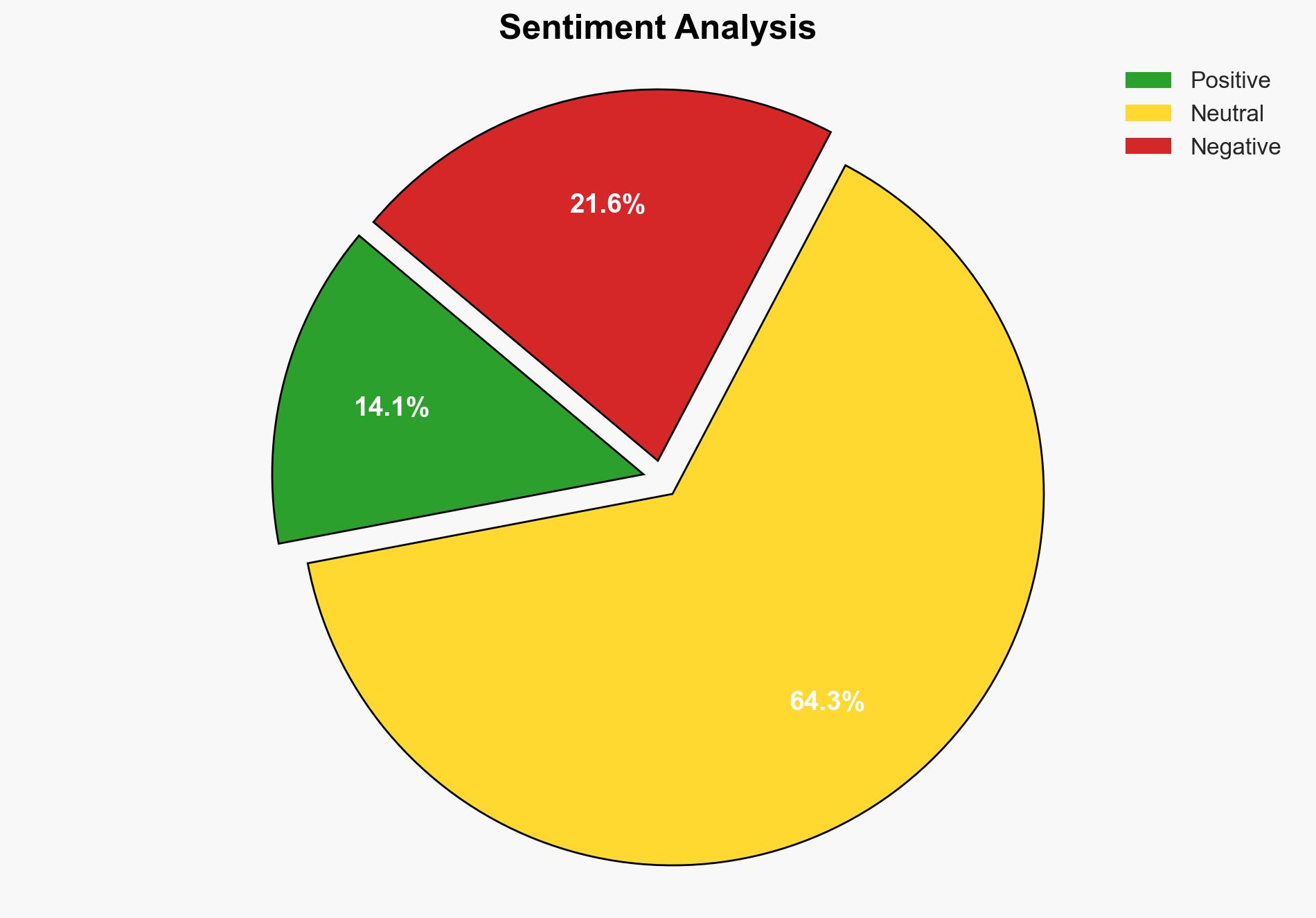Sudans army retakes presidential palace in Khartoum strikes blow to RSF – Al Jazeera English
Published on: 2025-03-21
Intelligence Report: Sudans army retakes presidential palace in Khartoum strikes blow to RSF – Al Jazeera English
1. BLUF (Bottom Line Up Front)
Sudan’s army has successfully retaken the presidential palace in Khartoum, marking a significant symbolic victory over the Rapid Support Forces (RSF). This development is celebrated by army supporters and raises concerns about a potential de facto partition of Sudan. The RSF continues to control parts of southern Khartoum and other regions, indicating ongoing instability and humanitarian crises. Immediate strategic actions are recommended to address the escalating conflict and its regional implications.
2. Detailed Analysis
The following structured analytic techniques have been applied for this analysis:
General Analysis
The recapture of the presidential palace by Sudan’s army is a pivotal event in the ongoing civil conflict that erupted in April. This victory is not only symbolic but also strategic, as it disrupts the RSF’s control in Khartoum. Despite this, the RSF retains control over significant territories, including parts of Darfur, which complicates the conflict dynamics. The RSF’s ability to maintain parallel governance structures poses a threat to Sudan’s territorial integrity. Reports of human rights abuses by both sides exacerbate the humanitarian crisis, with thousands dead or missing and millions facing food insecurity.
3. Implications and Strategic Risks
The ongoing conflict in Sudan presents several strategic risks:
- National Security: The potential for Sudan’s de facto partition could lead to prolonged instability and conflict spillover into neighboring countries.
- Regional Stability: The RSF’s control over strategic areas like Darfur could destabilize the region, affecting neighboring countries and international interests.
- Economic Interests: The conflict disrupts Sudan’s economic activities, particularly in key regions like Gezira, impacting food security and economic stability.
4. Recommendations and Outlook
Recommendations:
- Engage in diplomatic efforts to facilitate peace talks between conflicting parties to prevent further escalation.
- Enhance humanitarian aid and support to affected regions to mitigate the humanitarian crisis.
- Strengthen regional cooperation to address security threats and prevent conflict spillover.
Outlook:
Best-case Scenario: Successful peace negotiations lead to a ceasefire and gradual stabilization of the region.
Worst-case Scenario: Continued conflict results in Sudan’s partition, further destabilizing the region and exacerbating the humanitarian crisis.
Most Likely Scenario: Prolonged conflict with intermittent ceasefires, maintaining a status quo of instability and humanitarian challenges.
5. Key Individuals and Entities
The report mentions significant individuals and organizations:
- Mohame Hamdan Hemedti Dagalo
- Yousef
- Sharath Srinivasan
- United Nations High Commissioner for Human Rights (OHCHR)





